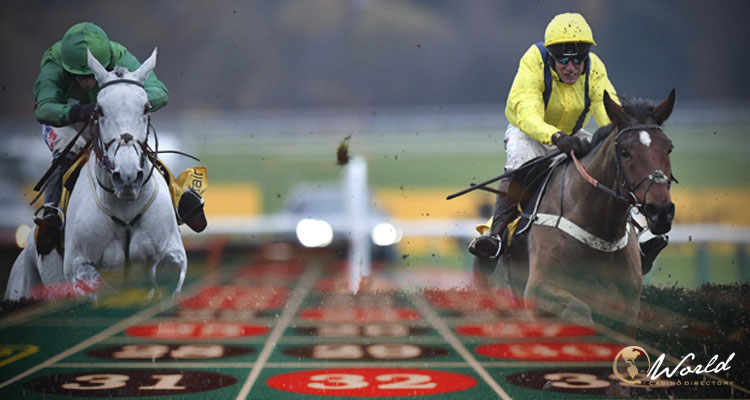It seemed impossible, but a legalization to allow legalized sports wagering on horse racing in traditional South Carolina sponsored by Democrat Russell Ott passed the Republican-majority House of Representatives.
Bipartisan alliance:
Russell Ott has managed to form a rare bipartisan union that would permit wagering on horse racing on a smartphone app.
The House’s 56-46 vote on Wednesday was something of a surprise in a state that has long been anti-gambling.
In this regard, Ott said on Thursday: “It was a longshot for sure.”
One example of state opposition is that 23 years ago, South Carolina closed the nearly $3 billion video poker industry that was brought together by court rulings instead of finding a way to fully regulate it.
Since then, South Carolina has permitted a lottery and completed some minor extensions of church raffles and bingo, but has been reluctant to participate in the expansion of gambling elsewhere.
A long way:
Although it passed the House by a whooping 56-46, the legislation still has a long way to go. It will first go before the Senate, where another act similar to this one has been waiting for its chance to pass the Senate since February.
Furthermore, in case it passes the Senate, there’s one more hurdle. In fact, Gov. Henry McMaster campaigned against extending any form of gambling in South Carolina starting in 2022 after his Democratic opponent put legalizing sports wagering a key campaign goal.
Commenting on the passage of the bill, McMaster’s chief of staff tweeted: “Nope.”
Throughout the heyday of the horse racing industry, 40 to 50 years ago, South Carolina was widely known as a very nice state in which to train a horse or ship it for the winter season.
On that note, Ott, who represents the rural regions south of Columbia, said: “I can remember as a child driving across the county and seeing pasture after pasture that was filled with horses.”
A great economic opportunity for the state:
According to the bill, a maximum of 3 online businesses can offer wagering apps in South Carolina. Punters will need to already have money in their account.
As for the state, it would receive at least 10% of the wagering income. However, the appointed commission provided for in the bill could negotiate more. Additionally, a lot of the money would go back to grants to attract more horses to train in South Carolina and extend the horse industry, according to Ott.
Betting can bring the state anywhere from $385.000 to almost $1.9 million a year, an economist who predicts the state budget said.
Opponents of the bill:
The 56 members of the House of Representatives who voted for the legislation were Democrats and Republicans. However, almost each vote against the bill came from Republicans, involving many House leaders.
They drew on what they said were “moral problems with gambling,” citing people “whose lives were ruined by purchasing many lottery tickets or who got hooked on video poker in the 1990s when 37,000 machines were spread out in gas station back rooms and hastily built warehouses with partitions.”
In this regard, House Majority Leader Davey Hiott said: “Not many of you were here when video poker was infested in South Carolina.
“We saw the terrible, terrible blight it put on this state.”
On that note, Ott watched the House voting board closely on Thursday, waiting for any members of the House who didn’t vote the day before to vote against the legislation. However, the result was almost the same, which meant allowing the proposal to just be tabled for a crucial deadline that would have made the legislation harder to take up in the Senate.
South Carolina can’t resist legalizing gambling for long:
According to Ott: “No matter what happens to my bill, South Carolina will find it harder to resist gambling both from the possible revenue it can collect and residents angry they can’t wager from their home or stadium.”
In support of that statement, he presented some lawmakers with a map of the state with big colored blobs around the biggest cities where people attempted to access the gambling app to wager on the Super Bowl or the Kentucky Derby but were turned away because of their location in South Carolina where it’s still illegal.
Additionally, he noted several times that “all the other things people do is gambling in some way, no matter if it’s the state lottery, the church raffle, investing in the stock market or a farmer planting seeds in the ground and hoping for a right amount of rain and the sun.”
In this regard, he added: “We should legalize this in some form or fashion because farmers shouldn’t have all the fun.”



